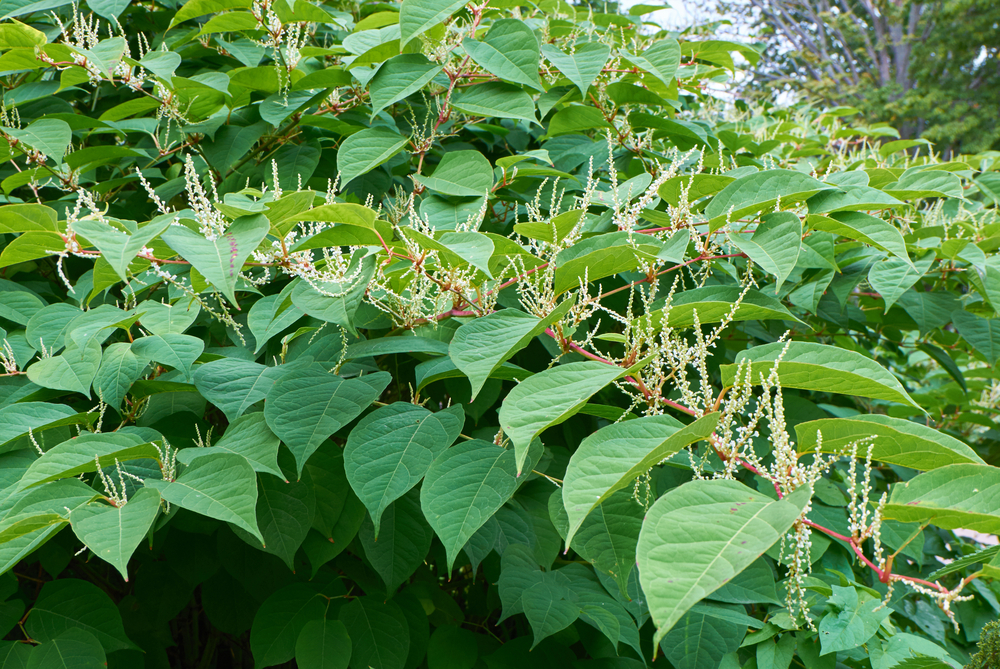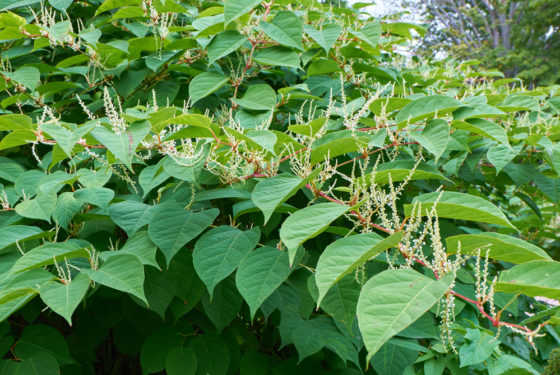Fighting like with like: can the Japanese leaf flea stop Japanese knotweed?


A Dutch institute has started control trials pitching Japanese leaf flea against the the invasive Japanese knotweed in an attempt to stop its spread.
Knotweed is a weed that spreads rapidly and suppresses all other plant growth, and is very hard to get rid off. At the same time, its invasive root system and strong stems can cause damage to buildings, pipes and roads.
After extensive testing in greenhouses, thousands of leaf fleas have been released in three locations in the Netherlands to see if they, rather than pesticides, can stop spread and to see how they will stand up to the Dutch weather.
‘The fleas suck at the leaf buds which stops the leaves from developing properly. That depletes the rootstock and prevents the weed from spreading quickly,’ researcher Janny Vos of the CABI institute for the biological control of exotic species, told broadcaster Nos.
‘It’s a David and Goliath situation to start with,’ Vos said.’The insects are tiny and fragile, like lice, and could very well be eaten or die in freezing weather. In the climatised space with constant temperatures and humidity it worked a treat but now we have to see if they can cope in nature.’
This is the first time one exotic species will be released into the environment to combat another, Vos said, and it has taken many years to achieve because of national and international agreements. ‘It’s not a simple procedure to put an insect in an environment it doesn’t belong in. You have to make sure it won’t harm other plants of insects. We tested the flea on over a hundred native species. The flea was not interested in any of them.’
The site where the tests are being carried out have not been made public. ‘People hold different opinions about this sort of work, with some saying we should not be introducing exotic species. Having people wandering all over the place could spoil the experiment,’ Vos said.
Thank you for donating to DutchNews.nl.
We could not provide the Dutch News service, and keep it free of charge, without the generous support of our readers. Your donations allow us to report on issues you tell us matter, and provide you with a summary of the most important Dutch news each day.
Make a donation